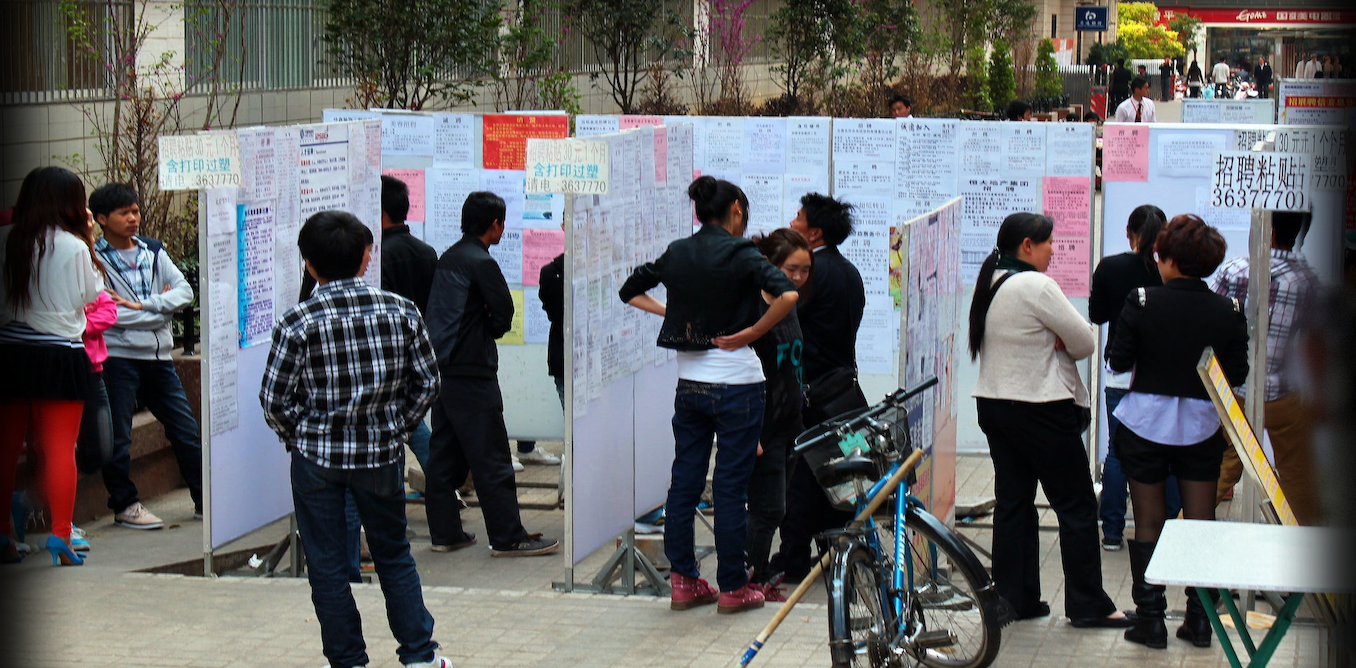Youth unemployment is a complex issue, but even more so in China as a result of government policy and society’s expectations, says Christian Yao, Senior Lecturer, Te Herenga Waka at the Victoria University of Wellington.
Under the Hukou system, households in China are required to register, and authorities then determine where they live and work and which public services they can access.
The system often stops rural residents taking advantage of urban opportunities, which can limit their work prospects.
The stress and uncertainty experienced by this demographic is only worsened by the expectations that come with being the only child in the family as a result of China’s one child policy, which was abandoned only seven years ago.


‘Conversationalists’ blaming ‘Communists’ for being ‘Conservative’ ?
Why can’t we find a better way to allocate work, irregardless of the political system?
You may end up in situations where like in germamy, where after 4th grade, testing splits people apart and movement out of the system is reletively difficult, or like in South Korea where some people are in a job for life due to horizontal mobility being worse. Its not an easy problem to solve, as perfect implementations of it can sort of lead to dystopian societies.
Fixing the problem would require active changing in education to reflect the future markets needs constantly, which would be an expensive and arduous task.
I mean, a well run capitalist/socialist economy seems to do a very good job at this, if a role is in demand, pay rates rise, and more people are attracted to that role.
The article is about youth unemployment. It’s the reserve army of labor. It begs the question: can you allocate jobs well without needing many applicants?